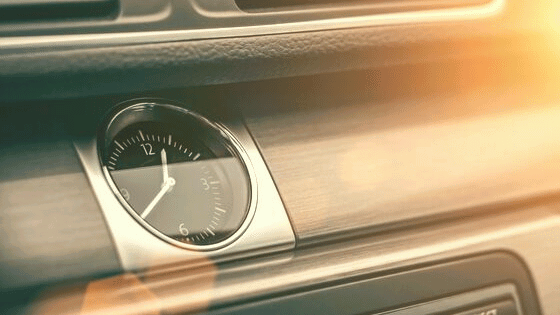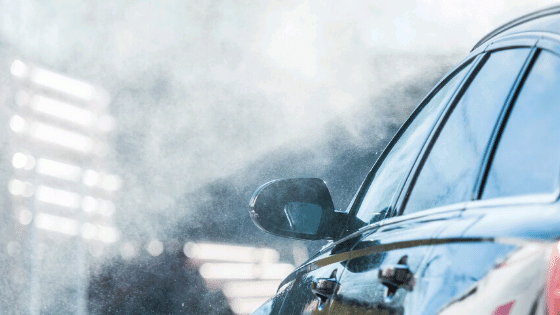- Our Mission: To provide the highest level of service and quality collision repair in an honest, ethical, and efficient manner. | Contact Us:
- 626-457-9114
- info@hiqualityautobody.com

How to Read your Body Shop Estimate
September 16, 2019
What Happens When You Get Into a Car Accident Without Insurance, But It’s Not Your Fault?
October 26, 2019Imagine the following:
You are stopped at a red light, waiting for the signal to turn green. Traffic conditions are moderately heavy with cars traveling at slow speeds.
Suddenly, you feel a forceful jolt behind you. While the impact shook you up a bit, your airbags didn’t deploy, and you’re pretty sure you weren’t hurt. The car behind you couldn’t have been traveling more than 15 to 20 mph.
You pull over to exchange information with the other driver. As you inspect the damage to your car, you’re surprised that it’s not as bad as you thought. Nonetheless, there is damage. After getting the other driver’s car insurance information, you drive home with no issue at all.
You have no rental car coverage on your policy, and you can’t be without your car. You know you want to fix it, eventually, but it’s not a priority, at least not now. So, you ask yourself, “how much time do I have to repair my car after my accident?”
But, before answering that question, ask yourself the following:
Do You Own The Car?
In other words, is your car paid off completely?
Yes, My Car is Completely Paid Off
If you own the car and have its title, you have two options. You can either repair it or take a “cashout,” minus your deductible.
Let’s say your cost of repairs is $900 and you have a $500 deductible. If you take a cashout, your insurance company will pay you the difference of $400.
If you choose to repair, your insurance may send the check directly to the body shop or to you. However, if you receive the check, you still have to pay the shop for its services.
Issuing a check payable directly to you fulfills your insurance company’s obligation to pay you for your claim. They are not required to force you to fix your car. You can use the money to repair it at your convenience or use it for something else.
If your car is a total loss and you own it completely, the same procedures apply. Your insurance company issues you a check for the value of your vehicle minus your deductible.
Keep in mind, these scenarios only apply if you have collision coverage. If you only have minimum liability coverage, you are not covered for any damages to your vehicle under your policy.
No, I’m Still Making Payments On It
If you’re still making payments on your car, the finance company you took out a loan from is a lienholder. While the car certainly feels like it belongs to you because you drive it and it’s under your possession, you don’t own it 100%.
As a lienholder, the bank holds the title to the car, which makes them the legal owner. The bank sends you the title only once you have paid off your loan.
For drivers who are still making payments, their finance companies will always be named on their insurance policies. Financiers still have an interest in the car and will want it to be fully functional. This is the reason why you’re required to have certain types of insurance coverage as part of the loan agreement. Imagine that you’re unable to continue making payments on your car. The bank has a right to repossess it if you don’t fulfill your payment obligations, and they’ll want it to be in working condition too.
For these reasons, your insurance and finance companies will require you to fix your car. It’s unlikely that you will be able to take a cashout and skip on repairs when you owe money on it. Contact your insurance or your insurance agent to report your accident claim.
How Much Time Do I Have to File a Claim?
Owning the car gives you more flexibility in terms of your repair options, including whether to take a cashout and repair it at a later time, or not repair it at all.
On the other hand, if you don’t own the car, you will want to report your accident to your insurance company and repair it as soon as possible. You have fewer options when you don’t own it, and you want to follow your insurance policy procedures.
So yes, this means you cannot afford to procrastinate on your car repairs or use the money for something else.
While exact reporting requirements and time limitations can vary by insurance companies, you want to act as soon as possible. This means reporting your accident and filing a claim as soon as it happens.
Today, reporting and making insurance claims is quick and easy. You can file online or make a call. The initial claim report should take no more than 10 minutes.
There is a Difference Between “Reporting” and “Opening a Claim”
Reporting a claim means reporting the facts of the accident to your insurance company. On the other hand, “opening a claim” means that you plan to use one of your policy coverages to pay for property damage, bodily injury, or something else like rental or towing.
It’s important to know the difference because your insurance company may have different time limitations on how long you have for each. As a general rule, however, you should report an accident no more than 24 hours after the incident.
Time limitations on using your policy coverage can also vary by the insurance policy. However, if you report your accident on time, you will be assigned a claims adjuster who will be able to answer specific questions about your claim, and any time limitations you may have.
Even if you have a minor accident but your damages are over your deductible, if you plan to take a cashout, you still want to file as soon as possible. While there may be no time limits on repairs, you may have a time limit for using your policy.
In California, the DMV Requires that You Report Accidents Within 10 Days
You have 10 days from the date of the accident to file an SR-1 report to the DMV. You must report the accident if it meets the following requirements:
- Property damages exceed $1,000
- If there were any injuries, including minor injuries
- If there were any fatalities
This accident report is required regardless of who is at fault. Also, reporting an accident to the DMV does not mean that your insurance company will receive this information automatically. You still have to report the loss to them.
If you plan to use your insurance for any coverage, whether it’s to have your vehicle repaired or pay for someone else’s damages, you want to act quickly. The amount of time it takes to handle every claim issue, including the repair process, can be lengthy. Reporting on time, including the DMV, filing a police report, and contacting your auto insurance, will ensure that you meet the obligations of your insurance carrier, the law, and your lender.
Have Questions or Wish to Schedule an Appointment?
Call Us:(626) 457-9114
or Send Us a Message


